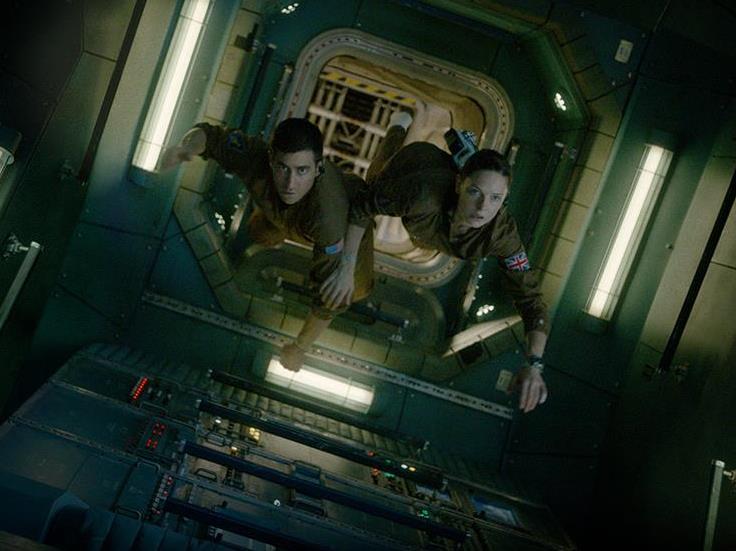Life directed by Daniel Espinosa. Image via Sony Pictures.
Space may be vast, but cinema’s vision of it is much more limited. That’s not a criticism; movies that reach above the earth and beyond in their setting aren’t simply concerned with their location, but with the reactions that their intergalactic surroundings inspire – and those responses often adhere to a pattern. Whether anyone can hear it or not, there’s typically screaming and other emotion-driven outbursts when characters are put in circumstances that force them to confront existence, mortality and humanity’s place in the world. According, as the latest effort to fly through this cinematic terrain, Life isn’t unusual in this regard, though few spaceship-bound efforts truly are.
In the span of films that followed La Voyage dans la Lune into space – including everything from 2001: A Space Odyssey, Solaris and its remake, and the Aliens franchise, to Sunshine, Moon and Gravity – the scenarios may change, but people coping with life and death as they either look down on the planet below or gaze upon black, star-spotted vistas stays the same. That proves the case as director Daniel Espinosa (Child 44) and writers Rhett Reese and Paul Wernick (Deadpool) chart the fallout when a crew on board the International Space Station come face to face with the first evidence of intelligent life beyond earth. A creature evolves from cells found on Mars, quickly growing into an attacking extra-terrestrial organism willing to fight for its own for survival.
Life populates its central team with recognisable candidates: doctors David Jordan (Jake Gyllenhaal, Nocturnal Animals) and Miranda North (Rebecca Ferguson, The Girl on the Train), the former fleeing the trauma of war, the latter process and safety-driven; mechanically minded Roy Adams (Ryan Reynolds, Criminal); leader Katerina Golovkina (Olga Dihovichnaya, House of Others); chief scientist Hugh Derry (Ariyon Bakare, Rogue One: A Star Wars Story), who’s enjoying escaping both gravity and his wheelchair; and senior crewmember Sho Kendo (Hiroyuki Sanada, TV’s The Last Ship), who remains cognisant of his blooming family back home. Their alien not-quite-friend, named Calvin by US school kids during a video link-up, might evolve through various sealife-like forms but it also plays an expected role as it threatens the station’s mission and human occupants.
Biological life on Mars breeds a monster, and familiarity breeds a sci-fi thriller that hews to a clear path without letting its place in a long line of claustrophobic space efforts elicit contempt. Confining his characters and images within the station setting, with its grey walls and rampant windows, portals and doors offering constant visual reminders of the barriers continually popping up in the quest to understand, explore and endure the titular state, Espinosa effectively amplifies the film’s atmosphere of tension – even when predicting what’s coming next isn’t difficult, particularly for Ridley Scott fans. Life mightn’t be able to avoid comparisons to similar fare, though it can relish its bumps and jumps, ramp up the sense of unease and suspense, and craft an involving and compelling trip into crowded territory.
Indeed, rather than bland derivation, the feature makes a strong case for the power of dependable parts used well. With cinematographer Seamus McGarvey’s (The Accountant) weaving visuals and lingering close-ups a highlight, Life benefits from its slick imagery, its command of mood, and – most importantly – its ability to convey the emotions behind the crew’s sometimes smart, sometimes questionable (though largely understandable) decisions. Both ‘what if we’re not alone?’ and ‘how would we respond to alien hostility?’ are queries that have been probed over and over again on screen; however the reactions here still sustain drama, horror and interest, with the cast all hitting the right notes. A finale that edits its way into obviousness is less convincing, but can’t dampen the fact that Life finds a way to exist, engage and entertain in cinema’s space realm.
Rating: 3 ½ stars out of 5
Life
Director: Daniel Espinosa
USA, 2017, 103 mins
Release date: March 23
Distributor: Sony
Rated: MA
Actors:
Director:
Format:
Country:
Release:





